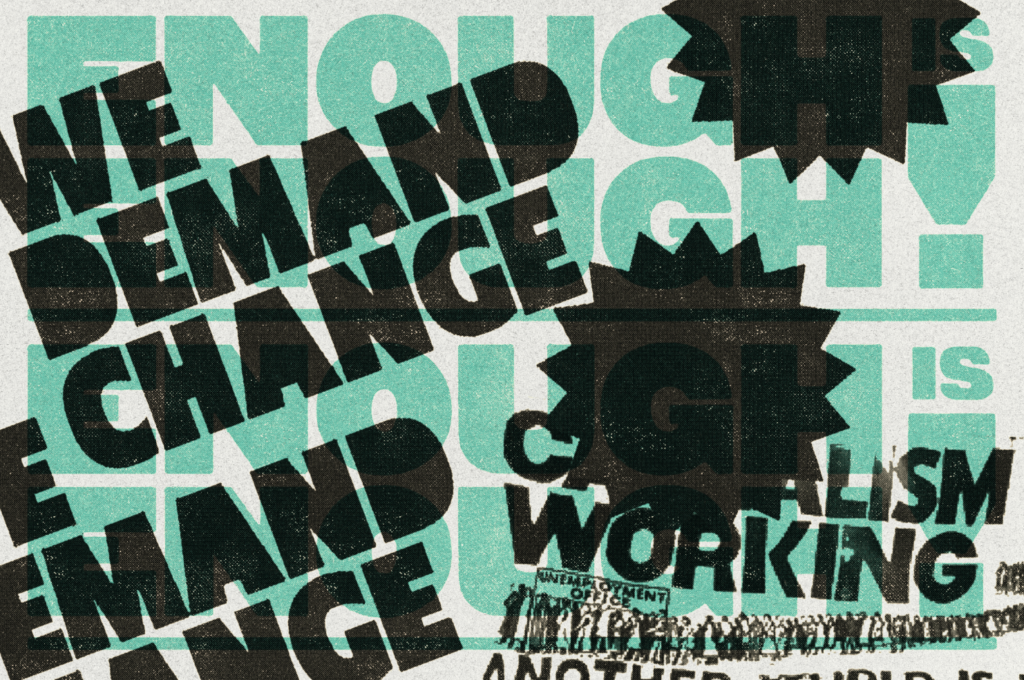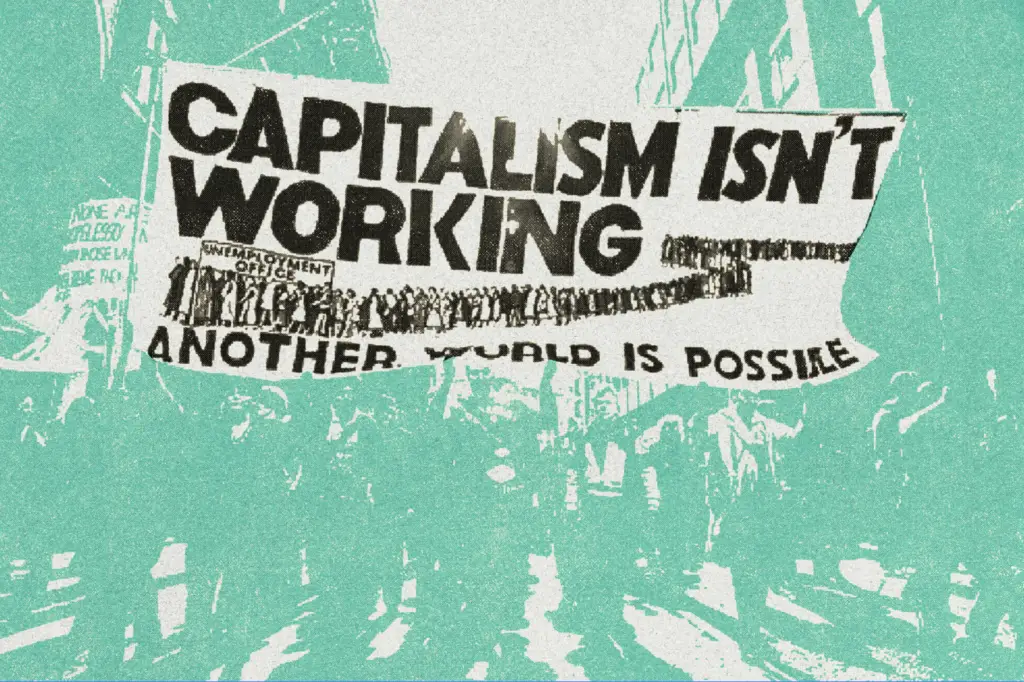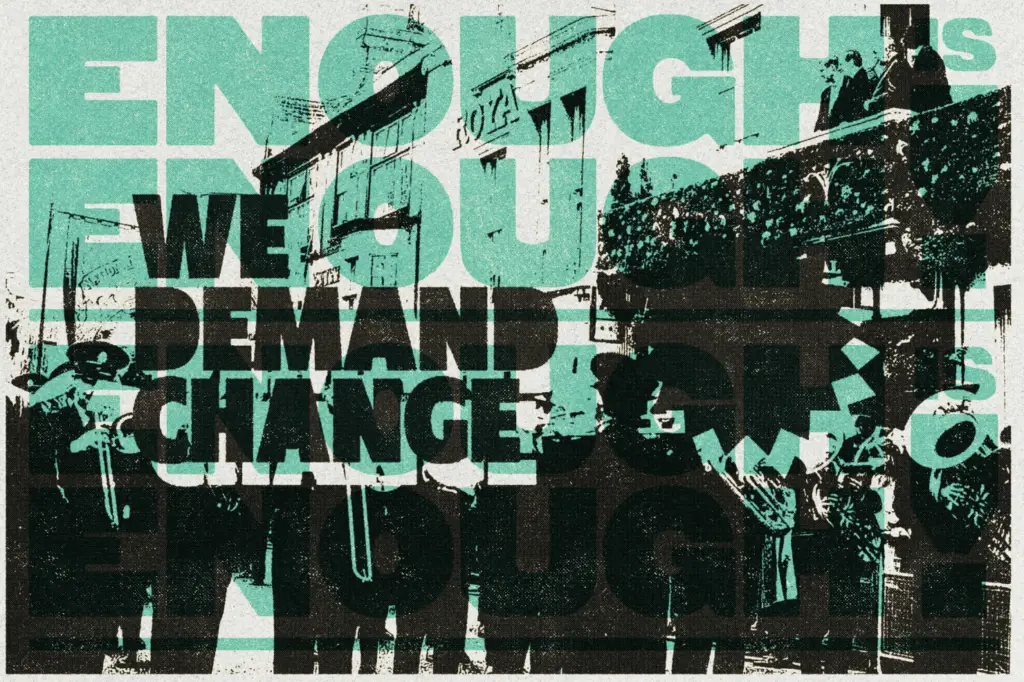“Hide nothing from the masses of our people … Mask no difficulties, mistakes, failures. Claim no easy victories”.
Join the Rise discussion, online, on Tuesday 18 March 2025 – this will be an open, inclusive discussion about organising to build power and the working class fight back.
On the 7 February 2025 a call was issued under the banner “We Demand Change” (WdC). The main thrust of the call is for a “summit of resistance” to be held in London on the 29 March 2025, which aims to bring together trade unionists, campaigners and activists, with a view to starting the process of building “a network of activists across sectors”. The purpose of bringing these actors together is, per the event statement, to turn the tide on despair and build a mass fightback against the various ills of capitalist society.
The driving forces behind the statement, or at least those that feature prominently on the associated website and social media pages, seem to be a small number of social democratic politicians, media personalities, trade union officials and several people and groups associated with the SWP and Counterfire.

The never-ending drive to capture more profit, to squeeze more from the working class, drives every capitalist. This relentless drive is what lies at the root of the growing inequality, climate destruction, and immiseration that characterises the world today. Without the labour of the working class, the capitalist class would not exist. The capitalist class, like any parasite, requires the working class for it to live, but the working class does not require the parasite.
While the working class is united in its shared experience of capitalist exploitation, there are important differences in how that exploitation is experienced. Oppression on the basis of gender, race, or sexual orientation or gender identity is also endemic in capitalist society. As a result, women, racial and other minorities, and the people of formerly colonised countries experience distinct forms of marginalisation and violence, which compounds the exploitation they experience as members of the working class.
These real differences in experience are often mobilised by ruling classes to divide the working class, and entrench systems of patriarchal, racial, or imperialist inequality. As such it is crucial that we fight to build a united working class, by advancing a class politics that is feminist, anti-racist, inclusive and anti-imperialist to its core.
Under the domination of private property and capitalist profit chasing, the working class can never live rich, fulfilling lives. For each worker, as an individual, to develop and live a rich, fulfilling life, the working class, collectively, needs to break the dictatorship of capital.
Given the weakness of the British left today, efforts to bring activists and groups together should, generally, be welcomed. Given the march of the Right, the increasing authoritarianism of the state, and the deepening, structural crisis of capitalism, we do need initiatives to bring together and re-constitute a serious, organised, fighting left.
In the context of the long post-Corbyn decomposition and recomposition of the British left, we have seen, and will continue to see, many such initiatives. We must assess each such initiative on its merits, and offer a clear, principled analysis, with the aim of advancing the much needed revival of the left and working class organisations. Based on: (i) the statement issued by the organisers; (ii) the model motion circulated; and (iii) the composition of the groups and individuals apparently driving the initiative, we can assess the merits and limitations of WdC.

Both the statement and the motion appear to be rooted, in part, in a persistent form of naive labourism. The idea that we all “celebrated … when a Labour Government was elected” in 2024, or that Labour “should be” adopting policies that benefit the working class is based on the latent illusion that the British Labour Party is something that it is not – a party of the working class. This is an article of faith for all within Labour who purport to pursue socialist/left politics, and for the brief period of Corbyn’s leadership of Labour, the party was committed to some moderate social democratic reforms that would have benefited working class people.
But the British Labour Party, throughout its history, has never really been a party of the working class, even though it has in crucial contexts been obliged to introduce reforms that benefited the working class. Continuing to nurture this illusion today is simply not justifiable. If the orientation of those involved in this initiative is that Labour has lost its way under Starmer, it leaves scope for people to swing back to the Labour fold with a more palatable leader, rather than learning the fundamental lessons about the nature of the Labour Party. Worse still, it means that even outside Labour, they will continue to reproduce the politics of labourism – with a focus on electing some good people and hoping that they can deliver change.
This form of top down, reformist politics has rarely served the working class, and in the context of the deepening crisis that the statement rightly acknowledges, is less than useless now. This shortcoming is exacerbated by some of the other language used in the statement and motion, where the concern is with working people, not the working class.
The statement is obviously not an in depth theoretical statement, but this slippage in language again reinforces the idea of a project looking to tap into the voting intentions of “working people”, rather than one committed to rebuilding working class power. Again, given the scale of the crises, and the signal lessons from the defeat of Corbynism, this sort of politics has very little to offer.
The use of the vague and exclusionary “working people” (a term favoured by the Labour Party in its attacks on disabled people, or climate protestors) is mirrored in the list of speakers for the summit. Career politicians, middle class media commentators, trade union officials and professional activists are given top billing and explicitly named alongside the amorphous category of “striking workers”. On a sympathetic reading, this form of words may have been used to protect the security of the workers involved, but just as likely it reflects the degree of importance placed on working class self-activity by those driving this initiative, which, again, does not bode well for it means to progress.

Finally, while personalised criticisms or attacks have no place in serious political analysis, the political history of key individuals involved with the initiative are important indicators of what the initiative may become. Several of the people prominently associated with WdC have been involved as speakers, or simply coat-tailing, in earlier post-Corbyn social media initiatives, such as Enough is Enough (EiE). EiE suffered from all the same problems of top down organisation, latent labourism and lack of focus on or commitment to working class self-activity and organisation.
It is noteworthy that the language of the statement refers to bringing together the already politically active to “campaign”, on various issues. Again, allowing for the fact that this is not an extensive or exhaustive statement, it nonetheless hints at a fundamentally flawed orientation. There is a world of difference between deep, long-term organising to build power, and campaigning/mobilising. The two are not mutually exclusive and of course must complement each other. But an over-emphasis on campaigning/mobilising speaks, again, to a lack of commitment to deep organising and working class self-activity. In the context of the current crisis, it is only a focus on deep organising and working class self-activity that can provide the basis for building a working class offensive against crisis-ridden capitalist system.
In brief, then, this seems like an unfortunate instance of trying to revivify a demonstrably failed form of politics. The people involved are no doubt earnest and serious, and many have long track records of fighting the right fights. But the model of top down, personality-driven social media campaigning offers nothing of substance for those of us concerned with building real working class power and fighting to break capitalism. We should not go out of our way to criticise this initiative, though the resources and energy that good people may pour into it could be put to better use elsewhere. Instead, we should both demand and put into practice a changed form of politics. One that is rooted in working class self-activity, deep organising and serious political education – then we might begin to build a serious fightback.
Join the Rise discussion, online, on Tuesday 18 March 2025 – this will be an open, inclusive discussion about organising to build power and the working class fight back.
It is clear to everyone that our society does not work for us all. Working class people, who produce the wealth, and without whom nothing works, have seen their wages, living standards and quality of life collapse. At the same time, the wealth of a tiny minority in society grows without restraint.
The Origins and Importance of May Day. On this May Day we send fraternal greetings and solidarity to the struggling working classes around the world and re-commit ourselves to the pursuit of working class liberation, socialism and world peace.
Palestine will continue until the structures of apartheid and colonialism are dismantled. There will be peace, but only when Palestine is free, from the river Jordan to the Mediterranean Sea. Rise will work tirelessly to hasten the day.
We use cookies to give you the best online experience. By agreeing you accept the use of cookies in accordance with our cookie policy.